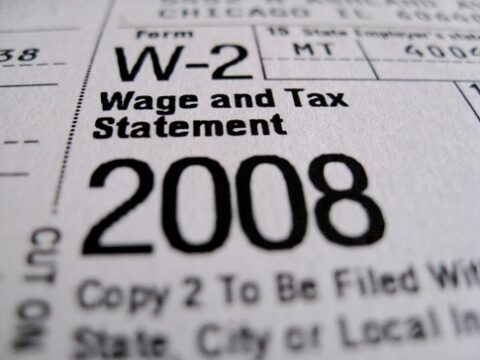Reform

Policy or Politics? DHS Changes and Expands 287(g) Program
Last Friday, Department of Homeland Security (DHS) Secretary Janet Napolitano announced changes to the controversial 287(g) program—a program which allows state and local police agencies to partner with ICE to enforce federal immigration laws. DHS also announced that, rather than waiting for the new policies to be implemented and tested, it has expanded the problematic 287(g) program with 11 new Memoranda of Agreement (MOAs). The 287(g) program has been broadly criticized by immigrant and civil rights advocates, religious leaders, elected officials and the police themselves. Numerous reports from think tanks, academics, community organizations and police associations have shown that the 287(g) program costs valuable resources, results in mistakes and racial profiling, does not effectively control illegal immigration, and makes it more difficult for the police to serve and protect their communities. Even the government found fault with how the program was being implemented. A March 2009 report by the Government Accountability Office (GAO) found the 287(g) program did not have clear goals and objectives and lacked consistent supervision. Read More

Large Immigrant Populations Keep Cities Safe, Just Ask El Paso, TX
El Paso, Texas, is a relatively poor, Hispanic, gun-friendly city and home to many undocumented immigrants. Yet although El Paso is adjacent to a violence-riddled Mexican city, it’s actually counted among the safest big cities in the U.S. Why is El Paso so safe? A recent article in Reason Online dispels some of the myths associated with immigrants and crime. Many Americans believe that immigrants—especially illegal immigrants—are associated with high levels of crime. However, according to criminologist Jack Levin, El Paso is safe because of its immigrant population. Read More

Politics as Usual: Senate Amendments Make Bad Policy, but Great Theater
It’s time to take a deep breath and recognize that you can rarely take Senate votes at face value when it comes to immigration. The amount of posturing and political preening that goes on is directly proportionate to how close we really are to pushing a substantive immigration proposal. So, what have we seen this week? Senator Schumer announces that there will be a comprehensive immigration reform bill by Labor Day. That’s good policy. The Council on Foreign Relations says comprehensive immigration reform is vital to our nation’s interests. Also good policy. Enforcement only amendments win on the Senate floor—bad policy, but great political theater. Unfortunately, political theater is often hard for politician to resist when they are dealing with complex issues that defy simple solutions. Read More

Council on Foreign Relations Urges Congress to “Get Our Immigration Policy Right”
Today, the Council on Foreign Relations, one of the oldest and most respected non-partisan foreign policy think tanks in America, issued a sweeping report on U.S. immigration policy. Developed by an independent task force comprised of bi-partisan leaders, including former Florida Governor Jeb Bush and Former Clinton White House Chief of Staff Thomas "Mack" McLarty, the report finds that the passage of comprehensive immigration reform is vital to the national interests of the United States. Read More

Community Backlash Over Utah’s Flawed Immigration Law
Utah’s “get tough on immigration” legislation, Senate Bill 81 (SB81), went into effect last week on July 1st. The litany of protests from faith groups, local police, and conservatives, however, demonstrates the futility of trying to solve a federal immigration problem through state law. Even Utah Gov. Jon Huntsman Jr. hesitated before signing SB81 into law back in March 2008, hoping the federal government would intervene with a national immigration reform bill before the July 1st implementation date. Read More

FAIR Promotes “Green Xenophobia”
In a new “special report” released on July 1, the Federation for American Immigration Reform (FAIR) regurgitates an old and deeply flawed argument: that immigration causes pollution. Specifically, the report claims that, because immigration increases the size of the U.S. population, it also increases U.S. energy consumption, which increases U.S. greenhouse gas emissions, which contributes to global warming. If this line of reasoning seems a tad weak, that’s because it is. As Andrea Nill writes for the ThinkProgress Wonk Room, the report relies largely on “anecdotes and inferences” in an “attempt to pander to progressive soft spots” on the environment. Read More

Major City Police Chiefs Just Say No To Immigration Enforcement
Tired of spending scant time and resources on immigration enforcement, major city police chiefs called on Congress, Wednesday, to move on comprehensive immigration reform. Like most law enforcement officers across the country, chasing down undocumented immigrants proves to be too much of a strain when faced with real priorities… Read More

Here He Goes Again: Lamar Smith Rehashes Distorted Claims on Immigrants and Social Security
Representative Lamar Smith, the top ranking Republican on the House Judiciary Committee, has been making the rounds again with astounding claims regarding immigrants and Social Security. Based on what he has described as “hard data” released by the Social Security Administration (SSA), Rep. Smith’s analysis is inaccurate and his conclusion wrong. There is broad agreement that the presence of undocumented workers in the United States helps to keep the Social Security system solvent. In fact, SSA estimates that payroll contributions relating to work performed by undocumented immigrants improved Social Security’s cash flow by $12 billion in 2007 alone, benefiting us all. Rep. Smith recognizes that undocumented immigrants pay into Social Security, yet he doesn’t want them to become U.S. citizens and participate when they retire and can no longer work. But that’s not how America works. The bedrock principle of the Social Security system is that what you get is based on what you pay in. Read More

Individual Taxpayer Identification Numbers (ITINs) NOT an Immigration Benefit
There is a lot of confusion surrounding Individual Taxpayer Identification Numbers (ITINs)—what they are, who has them, and the purposes for which they are used. Immigration restrictionists take advantage of this confusion and often bring up ITINs in an effort to make it seem as if undocumented immigrants are receiving special benefits or quasi-legal immigration status. The fact is that ITINs are used to pay taxes—some legal immigrants have them, some undocumented immigrants use them, and some people who don’t even live in the U.S. have them if they need to pay U.S. taxes. Read More

Blaming Immigrants for State Budget Deficits Doesn’t Make Sense
As state and local governments grapple with growing budget deficits brought on by the current economic recession, some pundits and policymakers are attempting to blame immigrants—particularly undocumented immigrants. According to this flawed line of reasoning, which was on display in a June 21st Sacramento Bee editorial by Daniel Weintraub entitled “The cost of illegal immigration,” if the tax contributions of immigrants in general, or undocumented immigrants in particular, don’t cover the costs of the public services they utilize in a single year, then immigrants must be a financial burden on the treasury and the majority of taxpayers. However, by this narrow and misleading measure, nearly all native-born children, retirees, and unemployed workers would also qualify as economic “burdens.” A realistic accounting of the economic “value” of any person must include the contributions they make over the course of a lifetime as workers, consumers, taxpayers, and entrepreneurs. Read More
Make a contribution
Make a direct impact on the lives of immigrants.
